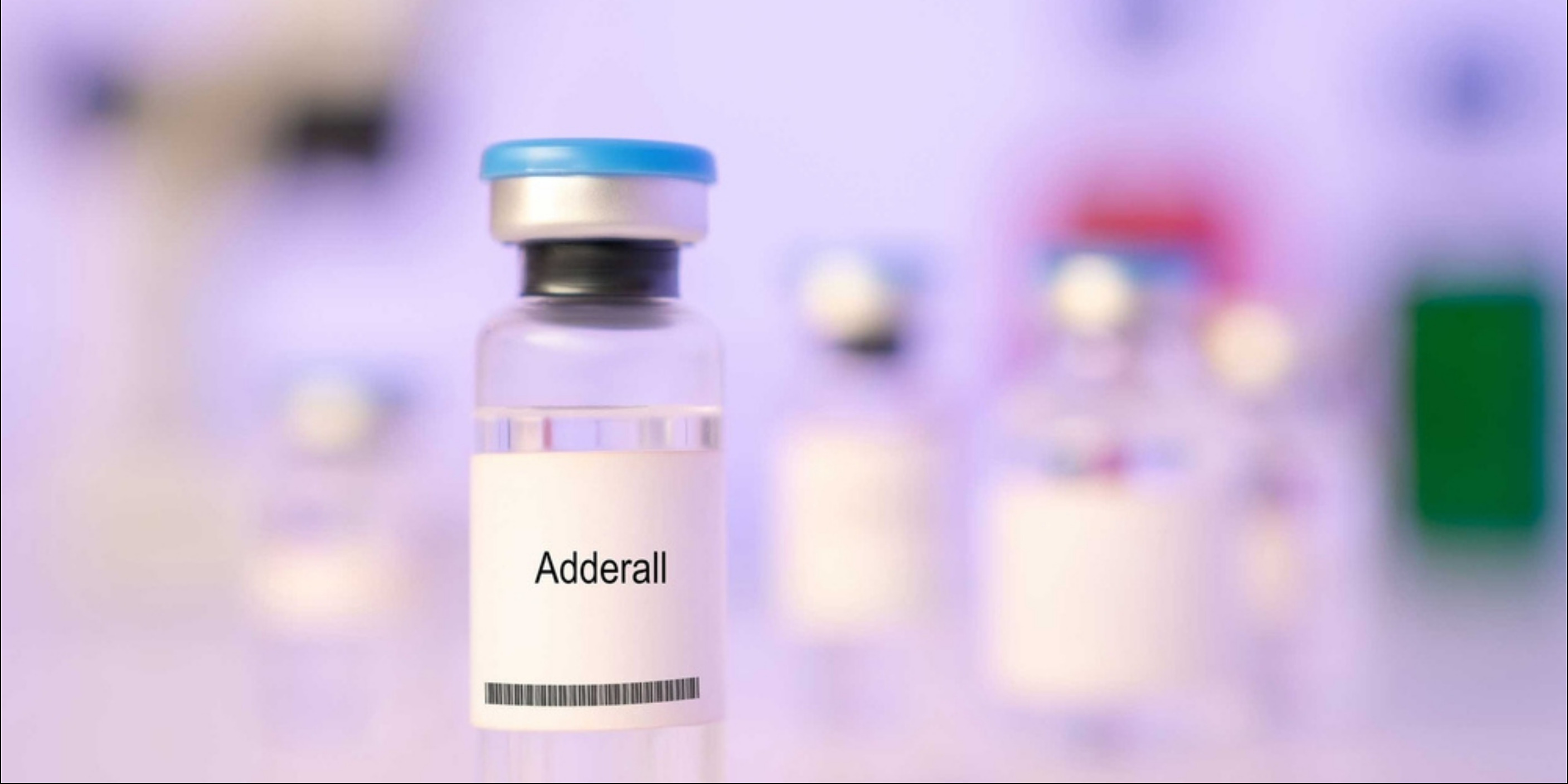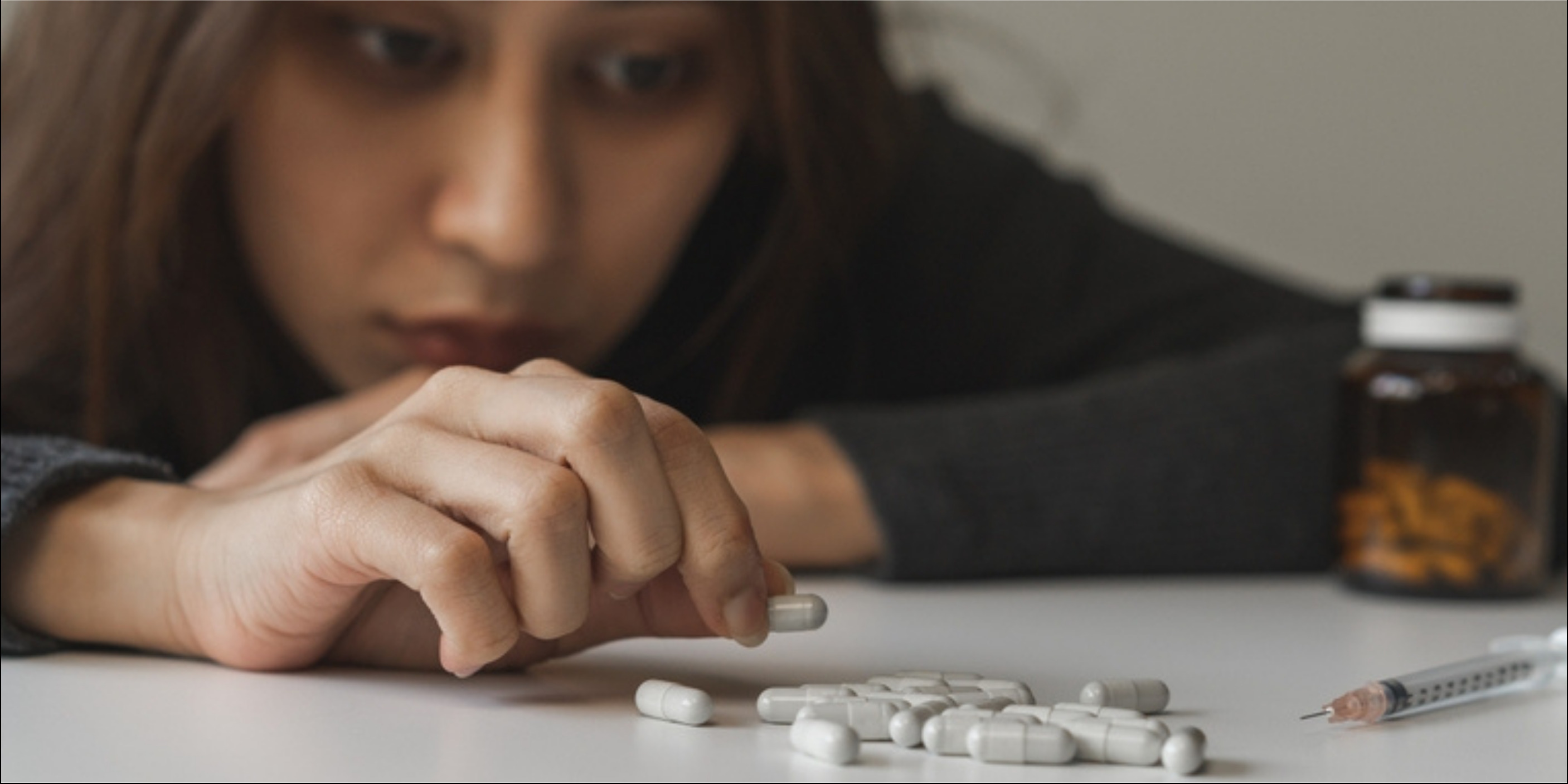Adderall Addiction | Signs, Symptoms and Effects
Adderall can be an effective ADHD medicine and since it was first released, it has helped many people manage the condition and live more peaceful, productive lives. However, for some people, Adderall has become a kind of productivity cheat code, abused for its focus- and energy-boosting effects. But that initial boost comes at a steep price. Adderall addiction is a serious risk, especially when it is being taken without medical supervision. Understanding how “safe” Adderall use can quickly turn and how to get help if you need it are key for protecting yourself from Adderall addiction.
What is Adderall?
Adderall is a stimulant medicine made from amphetamine and dextroamphetamine that work together to boost focus and energy. It is most often prescribed for ADHD (attention deficit hyperactivity disorder) and narcolepsy, a condition where you can’t stop falling asleep. Adderall works by balancing certain chemicals in the brain, which are often out of balance in people with these conditions.
For ADHD, Adderall helps calm racing thoughts, making it easier to focus and stay organised, while for narcolepsy, it keeps you awake and alert so you don’t drift off at the wrong time.
In the UK, however, Adderall is not available on prescription because of concerns about its side effects and because of how easily it can be abused. Side effects can include feeling overly wired, anxious or struggling to sleep and, as you already know if you are reading this page, Adderall addiction.
What is Adderall addiction?
Adderall addiction is when you have a compulsive need to keep taking Adderall even though it is harming you in some way. It is what happens when Adderall stops working for you and starts taking over your life.
You may start by using Adderall to meet a deadline, keep up with a hectic schedule or even self-medicate for ADHD or narcolepsy and in the beginning, it might feel like Adderall is working. The problem is that the more you use Adderall, the more you begin to crave it, locking you into a cycle of escalating use that creates high levels of Adderall in your body.
Your brain then forgets what it was like to do its jobs without Adderall, so if these levels drop – such as when you try to cut your dose or quit – the brain takes a while to remember how to function, and you go into Adderall withdrawal. This causes horrible symptoms like uncontrollable anxiety, sleeplessness and nausea, and these can quickly cause a relapse.
What makes Adderall addiction even more challenging is how quickly it can tighten its grip around your mind. As well as the physical withdrawal symptoms, Adderall can convince you that you need it and that life would be impossible without it. Over time, this psychological dependency can take a toll on everything from your health to your relationships and ultimately turn your world upside down.
Early Adderall addiction signs to look out for
Adderall addiction doesn’t hit you all at once – it sneaks up and takes over your life bit by bit. The key to preventing the worst Adderall addiction side effects is to recognise there is a growing issue as soon as possible before things start to get out of hand. Here are some of the early Adderall addiction signs you need to be aware of:
- You are leaning on Adderall for things that you used to manage without it.
- Cutting your Adderall dose or trying to go without it puts you into withdrawal.
- You feel like you can’t get through school, work or other parts of your life without Adderall.
- You are downplaying or justifying your escalating Adderall use, either to your friends and family or even yourself.
- You are getting Adderall illegally because you can’t get it on a prescription in the UK.
- Even though you know Adderall is causing issues, you can’t seem to stop taking it.
If any Adderall addiction signs feel familiar, the sooner you address the situation, the better your chances of turning things around.
How addictive is Adderall?
On a purely chemical level, Adderall can be habit-forming in a remarkably short amount of time, and anyone who takes Adderall can become dependent on it. However, as with all forms of stimulant addiction, no two people’s chances are the same. That’s because there are different factors which can increase the risk of developing an addiction to Adderall, which include:
Abusing Adderall for performance
If you are using Adderall to ace exams or crush deadlines, as tolerance builds, you will feel like you need to take more to keep up with demands. This unsupervised increase ramps up levels of Adderall in your systems, which massively increases the risk of Adderall addiction.
Mental health problems
Stress, anxiety and other mental health problems can make Adderall feel like a quick fix but relying on it without resolving the actual problem can quickly make Adderall use into a habit. Adderall addiction and ADHD are closely linked, as some people who take it for symptoms can become reliant on it.
Personal addiction history
Addiction can run in families so your risk might be greater if this is the case for you. It is thought that this is due to genetic traits affecting the brain’s reaction to substances and how easily it becomes dependent.
The most dangerous Adderall addiction side effects
Adderall addiction is a condition that impacts your mind, body and personal life, leaving a trail of damage in its wake. Here are some of the most dangerous Adderall addiction side effects:
Mental health decline
Adderall addiction is linked to heightened anxiety, paranoia, mood swings and depression. These can be pre-existing mental health conditions that become worse or totally new ones brought on by addiction to Adderall.
Physical risks
Prolonged Adderall use can be very physically harmful, causing high blood pressure and heart rate and an increased risk of serious heart problems. It can also damage vital organs like the liver and kidneys, especially when Adderal is used in high doses over a long period.
Adderall overdose
Overdosing on Adderall can lead to extreme symptoms like seizures, high blood pressure or even heart failure and requires immediate medical attention.
Relationship struggles
Adderall addiction can cause distrust, neglect and fights with your friends and family. All of this can leave you on your own to struggle which is the perfect environment for addiction to lock you in further.
How to overcome Adderall addiction
As you can see from this page, Adderall addiction is a complex condition. At Recovery Lighthouse, we provide Adderall addiction treatment that addresses these complexities for complete healing.
This process starts with a medically guided detox, which is when you come off Adderall and get professional help managing the withdrawal symptoms.
After that, our therapists will help you get to the bottom of why Adderall took over your life. This is done through stimulant rehab, where you will also learn better ways to manage stress, time pressures and anything else that may have contributed to your Adderall use.
Finally, we offer weekly group therapy for the year after you leave us as well as lifelong membership to our Alumni Group. These both provide a supportive space to share your experiences, get advice and stay focused on your goals.
Ready to put Adderall addiction behind you?
You’re stronger than Adderall addiction, and at Recovery Lighthouse, we’ll help you prove it. Our team is ready to support you every step of the way with everything you need to succeed. Don’t let Adderall addiction hold you back any longer – contact us today and take the first step towards lasting change.
Frequently Asked Questions
(Click here to see works cited)
- UK-Rehab. “Stimulants – Adderall Addiction Information | UK Rehab.” UK-Rehab, https://www.uk-rehab.com/stimulant-addiction/adderall/. Accessed 29 November 2024.
- UK Rehab. “Amphetamine Rehab | Amphetamine Addiction Treatment.” UK Rehab, https://www.uk-rehab.com/drug-rehab/amphetamine/. Accessed 29 November 2024.
- Jones, Stacey. “Adderall Abuse and Addiction: Symptoms and Warning Signs.” WebMD, 25 August 2022, https://www.webmd.com/mental-health/addiction/adderall-abuse-addiction-signs. Accessed 29 November 2024.
- NCBI. “Dextroamphetamine-Amphetamine – StatPearls.” NCBI, https://www.ncbi.nlm.nih.gov/books/NBK507808/. Accessed 29 November 2024.
- Patterson, Eric. “Adderall Abuse | Signs, Symptoms, and Addiction Treatment.” DrugAbuse.com, 2 May 2023, https://drugabuse.com/stimulants/adderall/. Accessed 29 November 2024.




